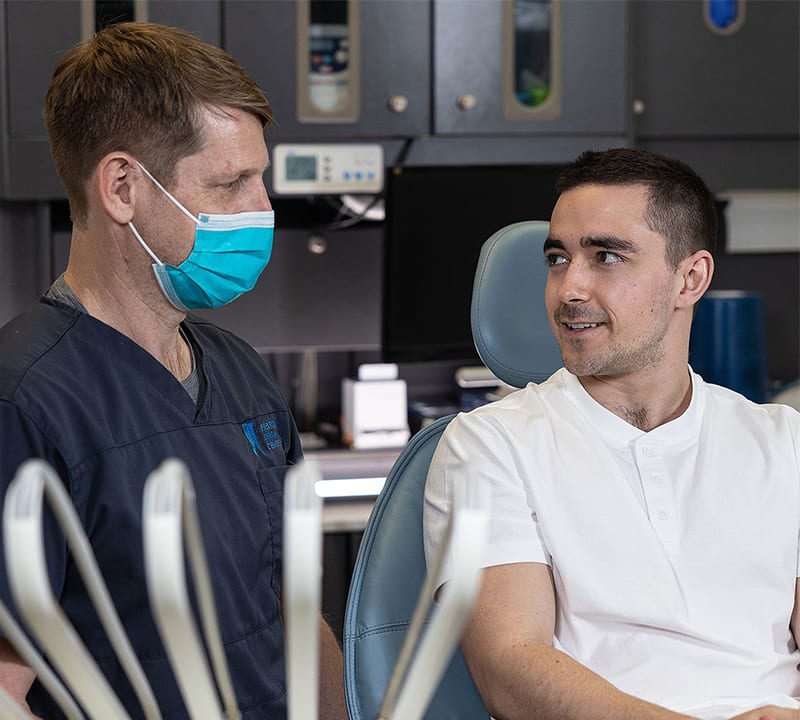
What Causes Bite & Jaw Joint Issues?
If you are experiencing jaw pain, it could be caused by airway issues, misalignment of the teeth or jaw, or physical trauma.
The first place our dentists will look is your bite. If your teeth are not lining up properly, it could be causing a host of symptoms.
Another potential contributing factor is bruxism, which is the clenching of the jaw and grinding of teeth, particularly while you sleep. Bruxism often occurs as a result of stress or sleep apnea.
At Preston Dental Centre, we can help diagnose bite and jaw joint problems, and treat them with a range of services.
Dental Appliances
Our dental team can create custom-fitted mouth guards and appliances to help with sleep disorders.
If you suffer from sleep apnea, your throat tissues are becoming too relaxed as you sleep and are blocking your airway. Our devices reposition your lower jaw and tongue muscles to allow for better airflow. This can help with bruxism if your body is instinctively grinding its teeth or clenching its jaw in an attempt to improve your breathing.
Orthodontics
Orthodontics are often used to correct bite and jaw misalignment. By gradually changing the position of your teeth, orthodontics can fix any issues with the way your upper and lower teeth fit together.
Otherwise, if there is a problem where your teeth meet, they can wear down over time and cause your jaw joints and muscles to become painful. This can also impact your ability to speak and eat.
Bone Grafts
Bone grafting is a surgical procedure where your dentist adds bone material to your jaw to increase its density. This builds a solid foundation to support other restorative procedures, such as dentures.
Your jaw begins experiencing a significant amount of bone loss once you lose a tooth. This can affect the stability of the rest of your teeth and weaken your facial muscles. Bone grafts reverse that bone loss to make a tooth replacement possible.
